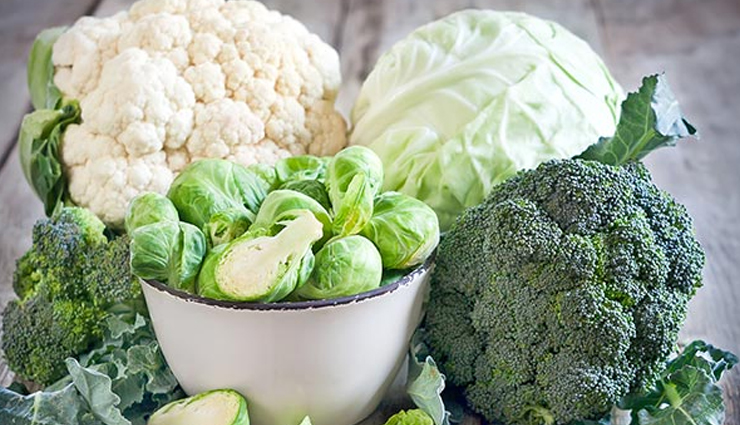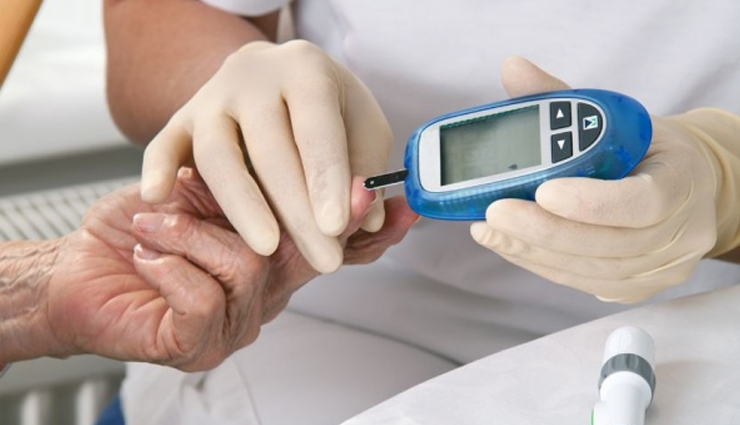- Home›
- Healthy Living›
- 3 Health Benefits Of Cruciferous Vegetables
3 Health Benefits Of Cruciferous Vegetables
By: Kratika Sat, 29 Jan 2022 5:11:42

Cruciferous vegetables are extremely good for you as they’re rich in antioxidants, some include cauliflower, cabbage, kale, broccoli, Brussels sprouts, and similar green leafy vegetables.
It is a very broad, diverse group of vegetables. The most distinctive characteristics of this family are they have a chemical compound that gives off a sulphate aroma when you overcook them. If you remember back to Christmas time when your brussels sprouts are boiling in the pan, and you can smell that unique aroma around the house, that is one of the main unique characteristics of Cruciferous Vegetables.
They got their name from the Latin word crucifix, because when the flowers bloom from all of these vegetables, they bloom in the shape of a cross.

# They May Support Heart Health
A growing body of research links eating cruciferous veggies to a reduced risk of heart disease. Regularly eating these vegetables was linked with lower total and HDL cholesterol levels in a January 2018 review in Molecules.
In fact, researchers pooled the findings of eight studies looking at the effects of cruciferous and leafy green vegetables on heart disease for a January 2016 review in the Journal of Royal Society of Medicine Cardiovascular Diseases. They found there was a 16 percent reduced risk of heart disease in those who ate the most cruciferous vegetables compared to those who ate these vegetables less frequently.

# They Can Aid With Blood Sugar Control
Like all vegetables, cruciferous veggies contain dietary fiber, which helps to slow digestion and the rate at which we absorb sugar from the foods we eat, according to the Harvard T.H. Chan School of Public Health.
Glucosinolates and other compounds in this family of vegetables have been linked to improvements in blood sugar control, according to a January 2016 meta-analysis in the Journal of Diabetes Investigation.
Cruciferous vegetables may help with blood sugar control by decreasing insulin resistance, per an April 2012 study in the International Journal of Food Sciences and Nutrition. Researchers tested the effects of different amounts of broccoli sprouts powder in people with type 2 diabetes. The groups received 10 grams (about 2.4 teaspoons), 5 grams (about 1.2 teaspoons) or a placebo.
After four weeks, the group that took the 10 grams of broccoli sprouts powder had a significant decrease in insulin levels and HOMA-IR, which stands for homeostatic model assessment of insulin resistance, a measurement used to understand diabetes risk.

# They're Linked to Lower Rates of Cancer
Eating cruciferous vegetables has also been associated with a lower risk of certain cancers, according to a July 2017 review in the International Journal of Epidemiology. Research from 95 different studies was analyzed to help the scientists understand the relationship between eating fruits and vegetables and heart disease, cancer and mortality.
The researchers determined that eating cruciferous veggies regularly was linked to a decreased risk of cancer. But, these types of studies do not determine cause and effect, but more of a potential relationship.
The reduced risk they determined may be due to glucosinolates, a compound found in cruciferous vegetables. Glucosinates have been linked to killing off tumor cells, reducing oxidative stress and slowing the growth of tumor cells, according to June 2018 research in the Asian Pacific Journal of Cancer Prevention.





